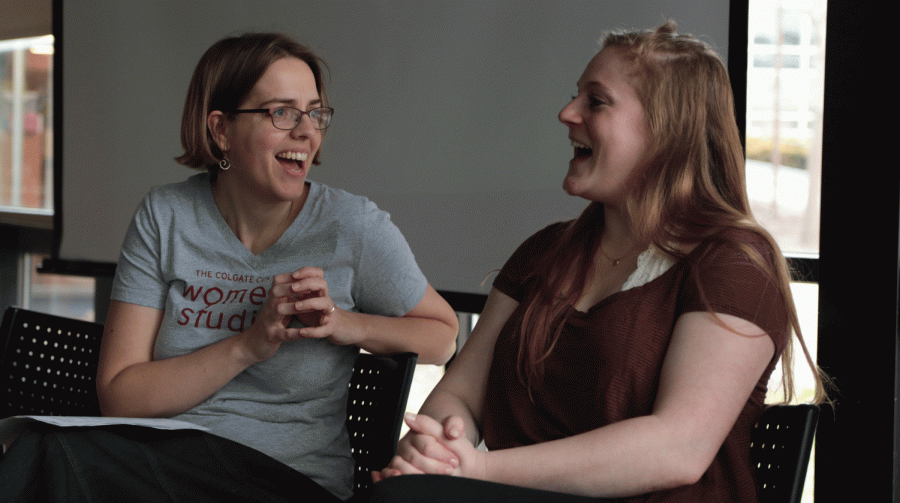The Affordable and Sustainable Period
A group of female students and faculty gathered in the ALANA Cultural Center for a panel discussion on the beauty and challenges of modern menstruation on Thursday, April 18. During this event, senior and women’s studies concentrator Cate Barber, the founder of the DOT for All Menstrual Cup Company, Betsy Drach and Assistant Professor of Biology Priscilla Van Wynsberghe engaged in an insightful conversation about menstruation and how to overcome its environmental impact and social stigmatization. This event was part of the Student Government Association’s (SGA) larger initiative on campus to destigmatize menstruation and provide students with reliable access to affordable and sustainable menstrual cups.
The panel discussion began with each panelist sharing their first period story. Although this is typically seen as a very personal and private experience, panel participants openly embraced their first period stories with the audience. The panel then encouraged audience members to turn to their neighbors and share their own stories with one another. After the exercise concluded, the panel highlighted how easily members of the audience were able to recall their first period, demonstrating the significant impact of menstruation on the lives of women.
The panel then welcomed Drach to share her thoughts on the stigma surrounding menstruation and to explain the benefits of using menstrual cups. In Drach’s eyes, stigma regarding menstruation extends across borders and is a universal issue. As periods only affect half of the population, Drach believes that menstruation stigma essentially boils down to a lack of understanding. However, Drach disapproves of society’s stigmatization of menstruation and hopes that one day women will not be ashamed of their periods, but instead feel comfortable talking freely about their cycles.
Drach also highlighted some of the key benefits of using a menstrual cup. First, menstrual cups are very cost efficient. A menstrual cup is a reusable product that lasts up to ten years, so individuals who use them will save money in the long run by not having to constantly buy expensive pads or tampons. Individuals who use menstrual cups also have a lower risk for Toxic Shock Syndrome than individuals who frequently use tampons. This is because menstrual cups are made out of medical-grade silicone, which does not support the growth of bacteria or toxins. Lastly, menstrual cups have major environmental benefits. Disposable menstrual products currently all utilize excessive plastic packaging, which is destructive to the environment and produces a large amount of unnecessary waste. Menstrual cups help mitigate this problem.
“The menstrual cup is a one time purchase for ten years. This purchase eliminates 2,400 pads and tampons, including all of their packaging, from the landfill over a ten-year period,” sophomore Christina Weiler said.
As the panel discussion came to a close, members of the audience were invited to ask questions and share their thoughts about the conversation. Barber also briefly talked about Progress Period, a student-run organization aiming to destigmatize conversations about periods. She encouraged members of the audience to join the club if they enjoyed the panel discussion and wished to continue talking about the obstacles of menstruation. Upon exiting the event, students and faculty had the opportunity to purchase a menstrual cup from the SGA for five dollars.
Contact Sarah Speegle at [email protected].






